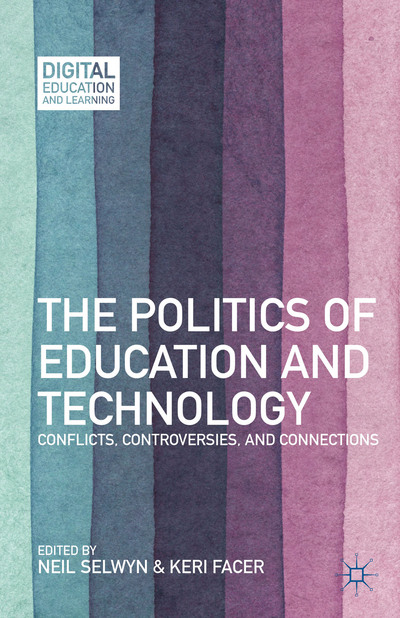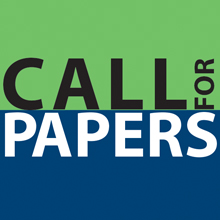5th Valencian Workshop on Computer-Assisted Language Learning: TELECOLLABORATION & SOCIAL MEDIA


V Jornadas Valencianas en torno al aprendizaje de lenguas asistido por ordenador: Telecolaboración y redes sociales
Noticia en la UPV
13-14 noviembre 2015
Escuela Técnica Superior de Ingeniería del Diseño, Universidad Politécnica de Valencia
Precio inscripción: 40 euros (35 euros PDI, PAS y estudiantes UPV)
Política de devolución: hasta el 01/11/2015 (75%)
Flyer here
Programa
Viernes, 13 de noviembre de 2015
9.00 – 9.30
Recogida de documentación. Vestíbulo de la Escuela Técnica Superior de Ingeniería del Diseño (edificio 7B), UPV
9.30 – 10.00
Apertura de las Jornadas. Salón de Actos de la Escuela Técnica Superior de Ingeniería del Diseño
10.00 – 10.30
Exposición novedades editoriales y café
Vestíbulo de la Escuela Técnica Superior de Ingeniería del Diseño
10.30 – 13.30
Presentaciones teóricas. Salón de Actos de la ETSID:
Joan Tomàs Pujolà. Universitat de Barcelona – Christine Appel. Universitat Oberta de Catalunya
Melinda Dooly. Universitat Autònoma de Barcelona
Caoimhín Ó Dónaill. Universidad de Ulster, Irlanda del Norte
13.30 – 14-00
Presentación a cargo de editorial. Salón de Actos ETSID.
14.00 – 16.00
Descanso para comer
16.00 – 17.00
Taller práctico impartido por Joan Tomàs Pujolà y Christine Appel
17.10 – 18.10
Taller práctico impartido por Melinda Dooly
18.20 – 19.20
Taller práctico impartido por Caoimhín Ó Dónaill
Sábado, 14 de noviembre de 2015
10.00 – 12.00
Presentaciones teóricas. Salón de Actos ETSID:
Giorgos Ypsilandis. Universidad Aristotélica. Salónica, Grecia
Camino Bueno Alastuey, Universidad Pública de Navarra
12.00 – 12.30
Exposición novedades editoriales y café
Vestíbulo de la Escuela Técnica Superior de Ingeniería del Diseño
12.30 – 13.30
Presentación teórica. Salón de Actos ETSID:
Pascual Pérez Paredes. Universidad de Murcia
13.30 – 14.00 Presentación a cargo de editorial. Salón de Actos ETSID.
14.00 – 16.00
Descanso para comer
16.00 – 17.00
Taller práctico impartido por Giorgos Ypsilandis
17.10 – 18.10
Taller práctico impartido por Camino Bueno Alastuey
18.20 – 19.20
Taller práctico impartido por Pascual Pérez Paredes
19.30
Conclusiones. Puesta en común y clausura de las Jornadas. Salón de Actos ETSID.
Conferenciantes invitados
Camino Bueno Alastuey, Universidad Pública de Navarra
Telecollaboration and the development of competences
The rapid advancement of Information and Communications Technologies (ICT) has allowed for new ways of teaching and learning. As those technologies have become an essential part of our daily life, they have brought about new possibilities for education and the need to integrate them purposefully into the curriculum. One of the possibilities for integration is telecollaboration. Based on sociocultural approaches to learning which claim that people learn through social interaction, many studies have analyzed the effect of telecollaboration endeavours. This presentation will analyze some of those studies to present the various possibilities of telecollaboration to develop different kinds of competences. First, I will show the results of some telecollaboration projects based on the development of language and cultural competences. Secondly, I will focus on the possibilities of telecollaboration for teacher training and for the development of techno-pedagogical competences. Finally, I will describe our current research project (REDTELCOM), whose aim is to analyze the development of less-assessed key competences (digital competence, learning to learn, sense of initiative and entrepreneurship, social competence, and cultural awareness and expression) through telecollaboration, and to create instruments to evaluate their development.
Workshop: In this workshop, we will explore aspects which have been shown to contribute to the successful implementation and development of telecollaboration projects. Considering the results of studies that have signal the advantages and disadvantages of such projects, this workshop will show what needs to be considered, the steps to be followed and how to mitigate some of the most common obstacles telecollaboration projects present for the teachers and students involved.
Caoimhín Ó Dónaill. Universidad de Ulster, Irlanda del Norte
What is my role? Exploring the impact of Social Media/Telecollaboration on teacher-learner-learner relationships.
In spite of the widespread participation in social media networks by a broad cross section of society, and the dominance of electronic methods of communication, language educators still face the traditional duty of guiding their students through a defined programme of study and measuring success against set criteria. Introducing computer-mediated communication (CMC) to the language classroom, real or virtual, breaks down barriers and opens up a wealth of possibilities, however, this can conversely bring new challenges e.g. participation in social media networks often serves to increase the quantity of communication without regard to quality, and for younger age groups issues relating to pastoral care become more acute. This talk will examine examples of current best practice in using CMC in language education and consider the changing role of the language teacher in web enriched study programmes.
Workshop: Planning and assessing computer-mediated communication activities
During this session participants will engage in a series of activities designed to evaluate a range of CMC tools and use templates to plan and review practical activities relating to their own teaching and using the resources available to them.
Melinda Dooly. Universitat Autònoma de Barcelona
Telecollaborative Language Learning: What, why and how?
This talk is divided into two parts. The first part of the talk will look at ways in which Telecollaborative Language Learning (TcLL) has been defined, designed and implemented within educational contexts in the past twenty years. Taking a brief look at research results, the pros and cons of TcLL, as well as underlying assumptions of this approach will be interrogated. The second part (the workshop) will deal with more practical aspects of how to design, implement and assess effective TcLL exchanges, with a particular emphasis placed on TcLL projects.
Giorgos Ypsilandis. Universidad Aristotélica. Tesalónica, Grecia
The notion of feedback in computer-assisted language learning
Feedback in language learning has been an issue for research since the Skinnerian behaviorist days. While different types of corrective feedback have been tested over the years, supportive feedback (provided automatically by software) is an issue that has only recently begun to attract a small number of scientists and findings resulting from experimental research are not solid yet. This keynote discusses the different notions of feedback and concentrates on feedback provided by language learning software. The methodology for data collection is presented. Effectiveness to short and long term memory is explored while findings from past experimental research is summarized. Future research on the topic is presented in relation to learner’s cognitive and learning style.
Workshop: Decoding and improving feedback provision strategies in CALL software
This workshop follows the relevant keynote and further presents an opportunity for participants to use acquired knowledge in practice and: a) decode existing feedback strategies in ready-made CALL software, b) improve existed feedback strategies and further, c) design feedback provision strategies for new software. Participants will prepare and present their ideas to the group and contribute to the creation of a list of different feedback strategies they will take with them at the end of the workshop.
Pascual Pérez Paredes, Universidad de Murcia
Normalising corpus use in the language classroom
Much has been said about the use of language corpora in the language classroom during the past 25 years. This includes both regular contributions to well-established conferences in the area such as TALC or Corpus Linguistics, as well as a wealth of edited volumes. This plethora of studies, mostly non-empirical, seems to suggest, in very general terms, that data driven learning (DDL) is beneficial for language learning. However, the use of corpora in the language classroom is far from being mainstream, and even farther from normalisation. This keynote will explore the factors that impede a wider spread and use of language corpora in FLT. In particular, this paper will discuss the teaching logistics, the learners’ conception and skills, the syllabus and software integration, as well as the training of the educators and learners that are involved in the use of corpora in the language classroom. A follow-up session will offer the opportunity to examine these factors across different applications and will offer the analytical tools to draw a picture of the role(s) of corpora in CALL.
Joan Tomàs Pujolà. Universidad de Barcelona
Christine Appel. Universitat Oberta de Catalunya
From gaming to gamification in language learning
Games have always been present in language teaching, from traditional methods to communicative approaches. The playful features of games help us develop students’ interaction, cooperation, and proactive involvement in doing language tasks. They are the catalyst to improve students’ motivation and to engage them with the content that is being provided. In recent years a new approach to enhance students’ motivation called gamification has started to make its way as an effective pedagogical approach. Now we are experimenting with game elements, game mechanics and game thinking to make the language teaching and learning experience game-like. In the workshop we will explore ways of how to gamify activities in the language class.








